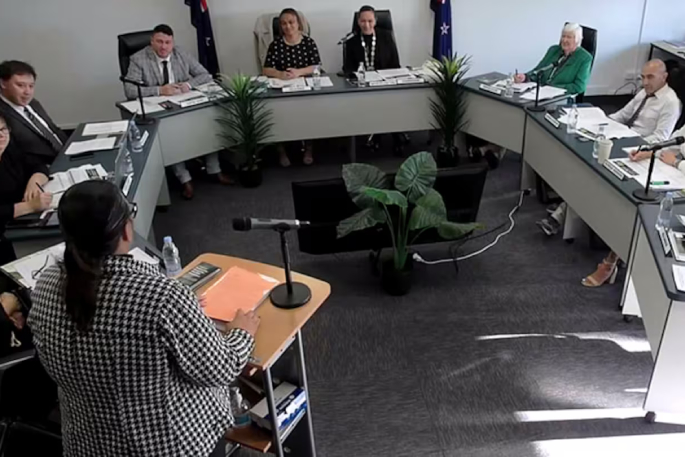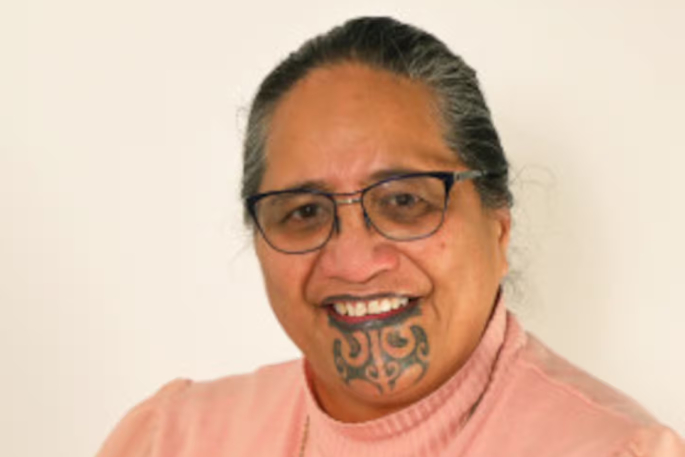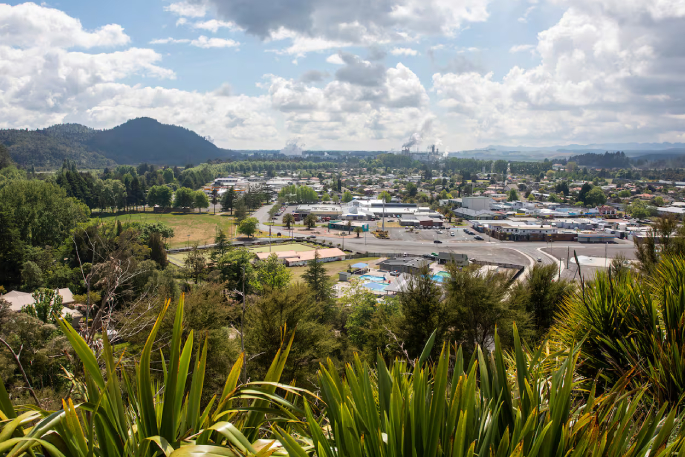Kawerau school principal Ripeka Lessels says the town is suffering the highest levels of poverty she has seen in her lifetime.
Lessels, who is founding principal of Te Whata Tau o Putauaki, spoke at a hearing of submissions for Kawerau District Council’s Annual Plan 2024-2025 on Wednesday.
She praised the council for maintaining the town’s beauty, trees, waterways and free town pool.
In regard to the proposed 15.1 per cent average rates rise, she asked the council to reconsider whether the rise was necessary.
She pointed out that the two leading drivers for the increase were increased staffing costs and additional staff needed for governance support, engineering, policy planning, solid waste and finance administration.
“Are they absolutely necessary?” she asked.
 Kawerau District Council. Photo supplied.
Kawerau District Council. Photo supplied.
“I ask this question as a school principal who makes these decisions all the time. Are they necessary? Can I do it differently? Can I do it better? Do I have the money to do that? What gives way?”
She says increasing rates on top of increases in costs of living would be “a double whammy for people already struggling”.
She had lived in the area since before the town was built in the 1950s.
“We are suffering poverty at the highest rates I have ever seen in over 60 years.
“I was a poor girl growing up. We were poor. We didn’t have anything, but we were never poverty-stricken. We never had homelessness.”
She says she was aware, as vice-president of trade union New Zealand Educational Institute and deputy chairwoman of the Teaching Council of Aotearoa New Zealand, poverty was rife throughout the country.
“I see it across the schools that I deal with.”
Due to upcoming legislative changes that could significantly impact its budgets, the council has opted to defer its long-term plan until next year and has engaged with its community on an enhanced annual plan for the coming year.
The council received 59 written submissions, considerably higher than the eight received during last year’s planning process.
The proposed rates rise, which it says was required to maintain current levels of service, was one of five specific topics the council asked for feedback on.
Most submitters, 31 in total, says no to the increase, while 23 agreed to it and five did not respond to the question.
The council also asked whether people would be happy for the council to amend some levels of service to reduce the rates increase.
Of the 35 who suggested reductions in service, a range of cost-cutting measures were mentioned.
Charging for the Maurie Kjar Memorial Aquatic Centre, reducing rubbish collections, reduced planting of annuals in public gardens that have to be replaced each year and reductions to council-organised events, were some of these.
 School principal Ripeka Lessels says poverty levels are the worst she has seen. Photo / Supplied.
School principal Ripeka Lessels says poverty levels are the worst she has seen. Photo / Supplied.
Several submitters also specified that they did not want to see charges for the pool and some wanted to charge only people from outside the district.
The cost of running the free swimming pool takes up 7 cents out of every rates dollar.
Norman Lee, who has lived in Kawerau for seven decades, spoke at the hearing, to ask the council not to consider charging for the town pool.
He was concerned children would swim in the river instead, which could result in an increase in drownings.
He felt introducing a charge for people who lived outside Kawerau would unfairly disadvantage friends and family members visiting their Kawerau relatives and wanting to visit the pool with other children in the group.
Mayor Faylene Tunui thanked all the submitters and says the council had heard the call that people were experiencing impoverished times.
“We never would have believed that in 2024 we would be living in those conditions,” she says.
The council will deliberate on community feedback on May 29 and is scheduled to adopt the final plan on June 26.
LDR is local body journalism co-funded by RNZ and NZ On Air.




0 comments
Leave a Comment
You must be logged in to make a comment.